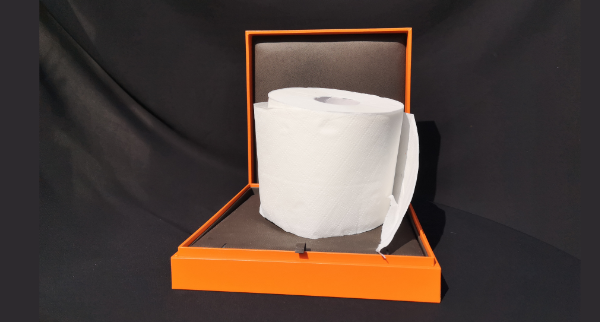As Pr. Stiglitz mentioned in an article for Columbia Business School , the Coronavirus outbreak is a new kind of crisis. We are not facing a traditional economic crisis, like an aggregated demand problem or a financial crash, the ones that we are used to confront since the last 50 years.
This new specie creates a disconnection between the demand and the supply with strong complementary feedbacks in the real economy, the contraction in the supply and in the demand will lead to a large destruction of economic surplus. The situation is so extreme that the most comparable situation we could compare with is the WWII. All economic sectors are impacted ; airlines industry, hospitality, real estate, infrastructure services, sports & entertainment…
This crisis is affecting our way of living in a very intense and deep manner, since we are not able to accomplish our basic human needs – the social interaction are blocked by the social distancing measures for their larger part, and we are entertaining ourselves virtually from home, connecting with our families and our friends through screens.
Covid crisis is disrupting our values and beliefs at a chocking and unprecedented scale and speed
What is new in this crisis is the impact of lockdown’s experience on population: the shift of values and behavior, the raise of new expectations in the global uncertainty context. They are the main variables for the prediction of how our World will be after Covid19 crisis and how the New Normal will be.
Story of numbers and Curves
The spectacular forecasted contraction of the economy is suggesting a shrunk of the GDP between 2% to 11%, with important differences between countries. This is very similar to the Great Recession that affected the world in the 1930’s. OECD has predicted the worldwide GDP to slow down from 2.9% to 2.4%. New data from MFI suggested even recession in advanced countries (-6.1 versus -3.2 in 2009 crisis), and the estimated GDP loss over 2020 and 2021 is about $9 trillion (more than Japan and Germany economies cumulated) .
In all the recovery model curves (U, L, W or V model), the impacts will be an important slowdown in the economy, an increase of the unemployment (US had 3 million job losses in one-week early March even before to be hit by the Covid19 wave), and destruction of economic surplus. The recovery time will be slow.
Government healthcare policies and measures will affect the speed of recovery of the economy, but they won’t be the only criteria. The population and the business leader’s behavior’s change after the crisis will be the key variables to define on which curve of recovery we will be in, and the time needed to reach the new normal equilibrium and the new market dynamic.
Governments policies and global interests’ measures will help to reduce the impacts. There is a high risk of inflation due to the financial aids and measures injected in the economy (EU is talking about 300 billion euros to be invested). Inflation can be one of the concerns, but this will be differently perceived cross the countries, it will depend on each country and their debts ratio and their Growth rate (for example UK will be probably less affected by inflation risk than other countries).
And Toilet Paper’s Story
The crisis of toilet paper and the shortages that we saw during the first weeks of the lockdown are a symptom of the crisis. It gave us some indications on the variables that will affect the shape of the recovery curve.
Two important elements of Human behavior and believes are expressed through the toilet paper shortage: fear of uncertainty and lack of security/safety. These two feelings are the building blocks of the trust of what is called Normality of Today.
The speed of trust’s recovery will be an important part of the recovery of the economy.
For business leaders, understanding how this crisis affects the different parts of the society in their country and markets, observing and listening what poeple will prioritize in the future, identifying which kind of shift will be operated in the consumption model and customer behavior will help to define the best strategy for their Future Business Normal. Even a small shift will draw a new economic eco-system, new business models and new dynamics.
We can have the same consideration for the public sector: understanding what the citizen expectations in terms of public services priorities and offering will be (education, healthcare, security etc. …), will drive the right policies and regulations. And will reinstate the Trust across the economic actors.
Customers are postponing their purchasing decisions, they are reviewing their priorities and the products that they would like to buy in the future, they are changing a lot (more in few weeks than in 10 Years)
- Technology and innovation are key in this crisis (even if in some space our technology and delivery capabilities are under stress). Lockdown was a super accelerator for society digitalization; all population from different ages experiment digital connections as never before (in addition to e-commerce platform, consumers are watching more content, the streaming increased by 40% in March between 11am and 2pm according Bloomberg and gaming platform Twitch logged 1.3 billion Hours last month), we can imagine that these experiences will establish new standards of consumption, 3D printing accelerate the availability of masks and valves in shorter term than any production line can do…
- The raise of health economy and business: the health will take an exceptional place in the consumer and citizen decision in the future.
- The lesson learned from this crisis, the importance of the local economy and the near shore production eco-system, the transparency and the increase of the awareness around sustainability topics. We see already different groups initiating the consume locally mandate asking how we can be sure that our products are produced locally, many economic actors in the tourism and the travel Industry are encouraging population to help local hotels and restaurants and spend their vacation in their home countries … The raise of made locally, encouraged by the creativity that we saw on different parts of the world from different actors of the society. The raise for more demand for proximity and economic patriotism.
- We will see a purpose driven consumption mode, where the experience- the brand’s purpose- and brand’s actions will be observed very carefully. We will consume products where brand’s purpose is aligned with our own purpose, we can expect a lower price elasticity today than by the past.
- Lockdown habits drive a new way of consumption for all kind of products and services, that will create new digital routines that might overpass the physical interaction for some of them (as mentioned by the last report from Accenture).
The trust on the brand will be a key priority to rebuild.
It will be also important to re-invent and define the new business models based on the behavioral shift and the new demand expectations.
For business leaders it is time to start looking at these shifts and start planning for it: how they will impact the market and how their business can be better prepared to be aligned with the new customers’ expectations and new value drivers. This is time for innovation, for imagining the future Normal for Business and for customers, time for a review of existing models (valid during time of certainty) that probably need to be revised during global uncertainty time.

